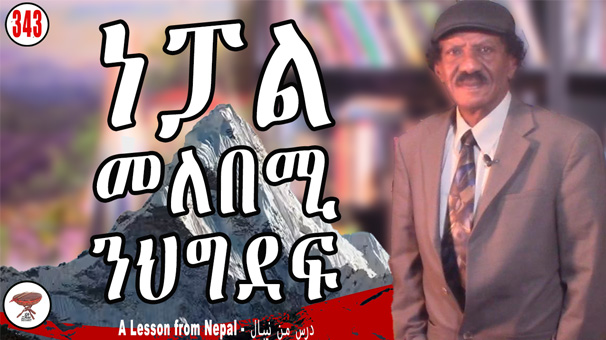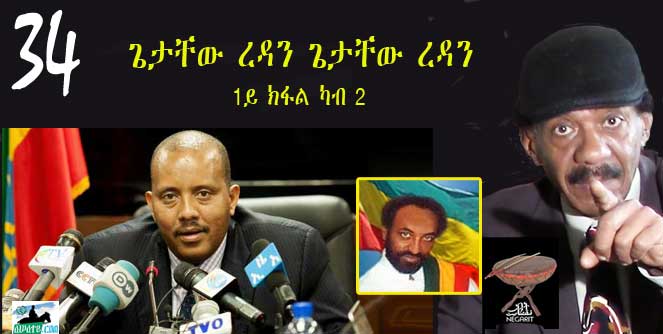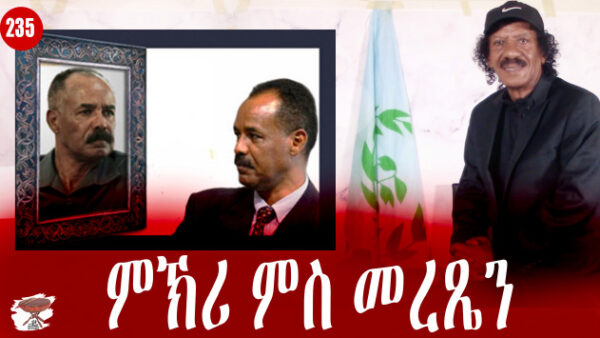Nepal: A Lesson for the PFDJ and the Youth
Every era popularizes certain names—mainly names of rulers and prominent people of the time. Since the nineteen-forties and fifties, the name of a famous person that was often repeated in newspapers and radio bulletins has become popular; parents adopt the name for their babies.
My aunt, (who is my cousin, but I called her aunt because she was the age of my father.) She was nicknamed Ettege Menen for her regal manners, bravery, and boldness! Popular culture believed that only a queen would have that character—Ettege Menen was the wife of Haile Selassie. Popularity of leaders is measured by the number of babies named after them. In many countries, quite a few babies were named Jemal and Saddam, Etiopia and Shewa.
Yesterday, a friend shared with me a fascinating story centered around naming babies. He said he put a wager on whether his friends could find children named Isaias. They failed, and he saved his wager.
There must be a few; I even heard that Mebruk Mubarek Al Rashidi, leader of the Free Lions Sudanese rebels who were trained in Sawa, had named his son Isaias. But that name is not as popular as it used to be—the man gambled with the name he built (despite the destructive role he played). How many people born after 1991 and named Isaias do you know? Tell us in the comment section.
The costly glossy façade that used to cover Eritrea has faded out. Whenever mentioned, the name Eritrea once evoked a flowery perception of a resilient nation, selfless brave people, and respected freedom fighters.
Eritreans inspired many nations; the reckless governance and monopolistic one-party rule wasted all that capital built over long years. Now the veneer masking the harsh realities is forgotten. Eritrea requires a political ambulance that would take it to a conscience and intellectual emergency room.
The rulers have put blinders over their eyes and blocked their ears, and their tongues are tied. If they talk, it’s to protect their backs—to hell with the nation. After all, it’s only meant to serve them.
Everyone is a citizen, but not everyone is a patriot. Citizens need to wake up. The oblivious among them need to pump life into their senses and their dormant conscience. Maybe they could manage to gain some patriotic qualities. Eritrea is a multi-tiered home of its citizens, but many are destructively enamored with hollow slogans. Humanistic patriotism is not about shouting slogans.
The time demands responsible, high politics, and not everyone is cut out for refined, selfless politics—and that requires a certain caliber with understanding and compassion. Complex national issues demand some qualifications to engage meaningfully.
Alas, Eritrea is ruled by a self-centered populist clique that sees itself above the nation. And that mindset has sidelined more citizens than it has included. Its ranks are known for their embarrassing lack of intellectual honesty and prowess—it’s allergic to critical thinking and to intellectuals, to those who are supposed to harbor those qualities. It’s a clique that must dwell in gambling halls, not in a place of governance. Eritrea deserves more than the PFDJ’s mediocrity.
“L’État, c’est moi.”
It’s widely believed that the French King Louis XIV, who ruled from 1643 to 1715, said, “I am the state, and the state is me.” Isaias Afwerki echoed this sentiment, albeit three centuries later, stating, “To me, the PFDJ (the ruling party) is not a party; it’s the nation.” Of course, he thinks he is the state.
Worse, the ruling party governs by brute military force, and its law is military fiat. Unilateral governance, criminalizing dissent, and the lack of basic justice and freedoms pose the greatest threat to Eritrea’s unity and security.
This is a candid analysis of Eritrea’s societal divisions, political stagnation, and governance failures. I am urging collective action to dismantle the oppressive systems. I will continue to unmask Eritrea’s fractures. This is a serious call for change.
NEPAL
Nepal is a country in the Himalayas bordering India and China through Tibet and Bhutan and the Indian state of Sikkim.
Growing up, I was introduced to Nepal at an early age. In front of the Grand Mosque, to the right behind the buildings on an alley from Selam Street, there was a smoke-filled dark teashop. It was frequented by hashish sellers and smokers, and some Kagnew Station navy men who baptized the place Kathmandu, the capital city of Nepal. Music blasted, “Born to Be Wild” and Santa Esmeralda’s “A House of the Rising Sun”—songs popularized by the hippie culture of the time—fitting for rebellious bikers and pot smokers. Now Nepal is in the news. Two years ago I made a video, Negarit 150, “The Six husbands of Eritrea,”, it provides a background about Nepal, and it’s linked here.
The Nepalese youth had enough of their government and unseated it through a massive popular uprising. The main issue was corruption of the ministers and senior officials. Last year alone, over 700,000 workers left Nepal to work in many countries. The youth demonstrations turned aggressive; the government decided to quash them by military force. Live ammunition killed scores of citizens. The protesters burned ministers’ houses and several government offices. They snatched the PM, stripped him of his clothes, and threw him into a river. Some were lifted by helicopter from the terrace of a building to escape the crowds. Finally, the military sided with the protesters, who were instrumental in forming a transitional government. The seemingly untouchable government leaders fled unceremoniously. Nepal is slowly becoming stable.
PFDJ and Youth, Learn the Lesson
In Nepal, there is a lesson to be learned, as if we didn’t have enough lessons of our own that we ignored. But what happened in Nepal is a rude awakening. Are you clique of tyranny listening? Please listen and contemplate—for your own good and for the good of the nation. Eritreans cannot tolerate societal divisions, political oppression, lack of justice, and intellectual suppression indefinitely.
Eritrea’s pitiful leaders: how long do you expect the people to tolerate your excesses? Remember, time is of the essence. Use it wisely. You still have a slim chance—the people may forgive you for the sake of Eritrea. As for me, you are forgiven!





Awate Forum